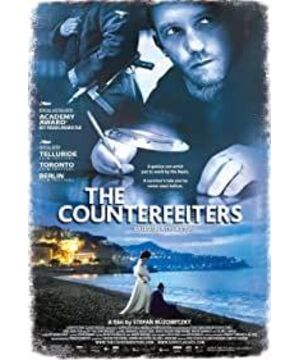What is war? Some people are going to die, some people are going to lose profits, and this is war.
The biggest difference between World War II and all wars was not its scope, but that it was a dangerous start to the fascist attempt to conquer the world. But this war is similar to thousands of wars: some people want others to die and others to lose profits. Anti-Semitic thinking can be found everywhere. In order to end the Black Death, Europeans in the Middle Ages defined Jews as sinners and were executed. Before World War II, most European countries in Britain, America, France and Poland did not treat Jews very much. As for the Soviet Union, the rulers maintained a distrust of the Jews throughout.
After listening to these words, my friend asked me, what does this have to do with your title? In fact, it was precisely because of the prevalence of anti-Semitism that fascism had its first foothold in Europe. When European Jews, especially those with better social status, were arrested in large numbers, the local people felt that it was a good thing to free up more living space for them, so they had no need to object. German soldiers and capitalists would not object when these Jews were instead sent to concentration camps for unpaid slave labor. By my values, they are bad guys. No one has the right to unconditionally deprive a normal Jew of his life.
But the problem is precisely here. Peacetime Sally was a perpetrator of forgery of documents and currency, sentenced to release Jews who were arrested after the war. Is he a good man? Friends say he committed a crime, of course not. The perpetrator enters the camp and finds out that the Nazis have escalated anti-Semitism to slaughter, and if he doesn't do something, he can only become a dead Jew with the good Jew and the bad Jew.
So what did he choose? He chose to use his good painting skills to paint portraits and propaganda posters for the soldiers and officers in exchange for a food that could survive. Although he was still treated like a beast, his life improved and he became a white-collar slave among slaves. Was the social stratification system of Nazi management of concentration camp prisoners bad? My friend and I watched the film together and told me that this is just a variant of the incentive system, which has always been the case in capitalist society. I suddenly realized that there are no good or bad people here, everyone is as black as a crow.
But things got more complicated when Sally became involved in Herzog's counterfeiting scheme. He would lead dozens of equally skilled Jewish white-collar slaves to finance the war for the Nazis, while at the same time causing the enemy's economy to fail. Having done these things, they had box springs, clean bedding, and showers—no enslavement at all. Sally asked himself, looked at others, um, it seemed that it was okay to do so, I was also a criminal in peacetime, and now I can live an extra day when I commit a crime, and I can save a group of inmates. Is this a good guy? A friend said that it was just to make some counterfeit money. The local economic credit of the British had already collapsed, and it all depended on blood transfusion from the colonies. Come to think of it, that's half a good person!
He made a rash move to seek medical treatment for his tuberculosis inmates and shelter the rebels. In the end, the Nazi officer took the initiative to come to him and tell him that he just wanted to live, that the Nazis were going to end, and he wanted a fake passport to get away. Seeing this, all the benefits are obvious. People are selfish, as are the Germans living under Nazi ideology, and the same is true in America, where liberal democracy reigns. Sally did not refuse, he also understood that at this time he was in control of the execution power of the Nazis, and no one could control me. But now Sally chose to let him go, why? Sally respects life to the heart. The executioner kills like numb, but he doesn't deserve to let Sally violate his own ethics. From the day he entered the concentration camp, his tainted morals and reputation had already made Sally sentence the Nazis to death in his heart. He reached this level after being numb to the arbitrary execution of his fellow man for sale.
The war raged to the end, and the inmates complained with grief and indignation. Wasn't Sally living in pain amid contradictions and suffering? After regaining the peace, he swaggered into the casino, squandered unreal dollar bills, and regained the favor of the beauties. In the eyes of others, he has regained his romantic son Fan, but he does not know his inner monologue: there are no good people or bad people, they just want to be a living person.
View more about The Counterfeiters reviews











